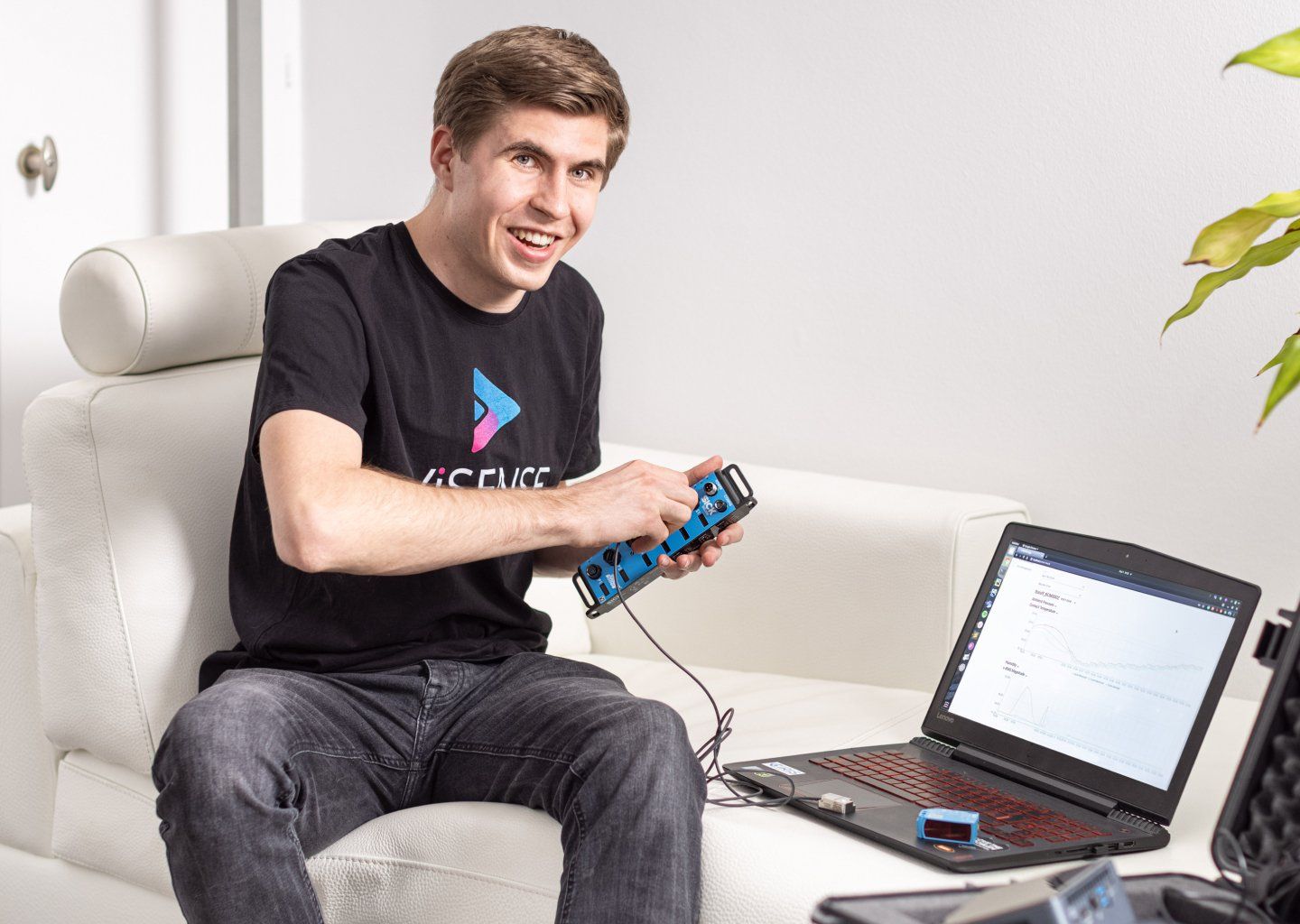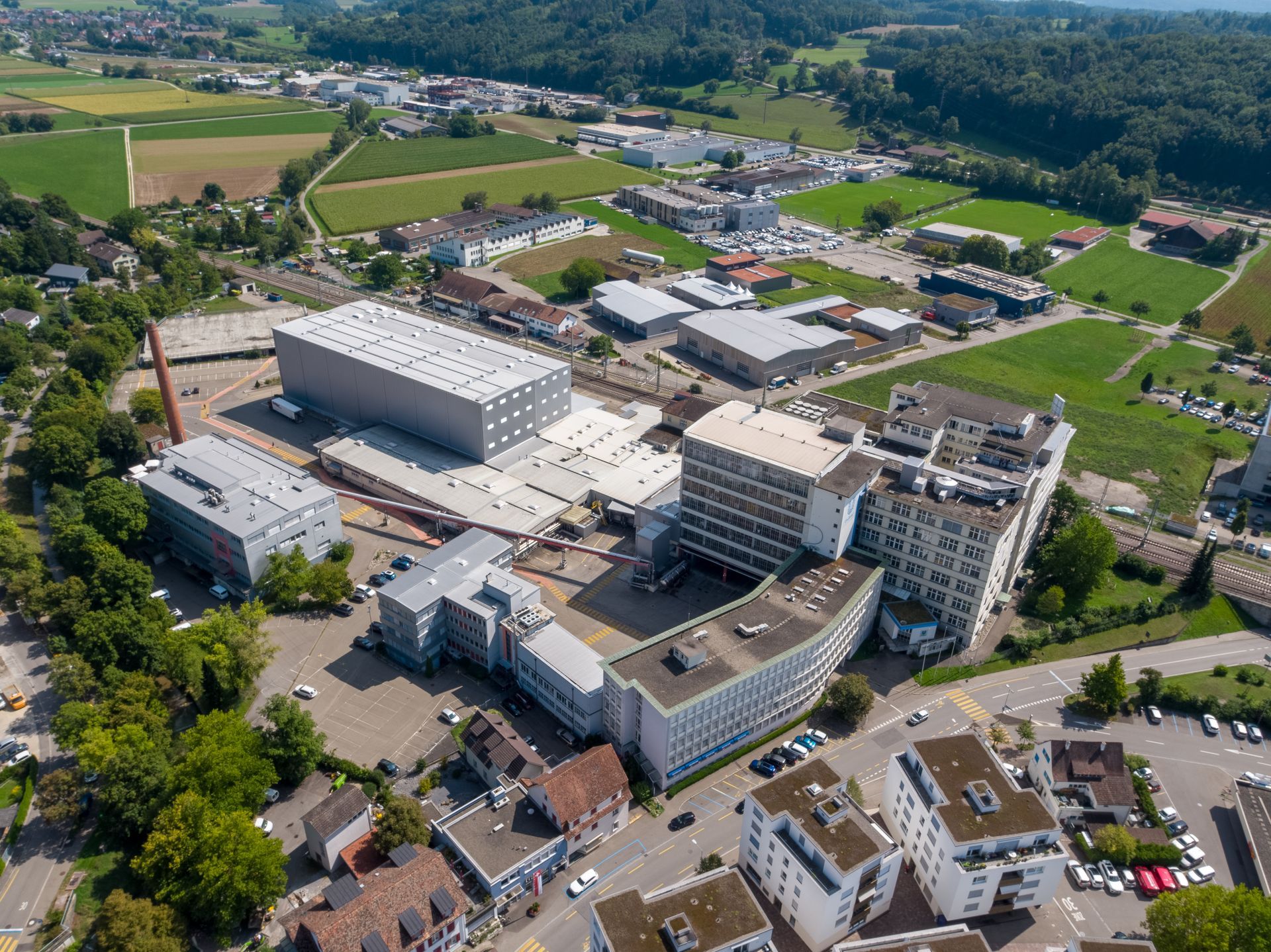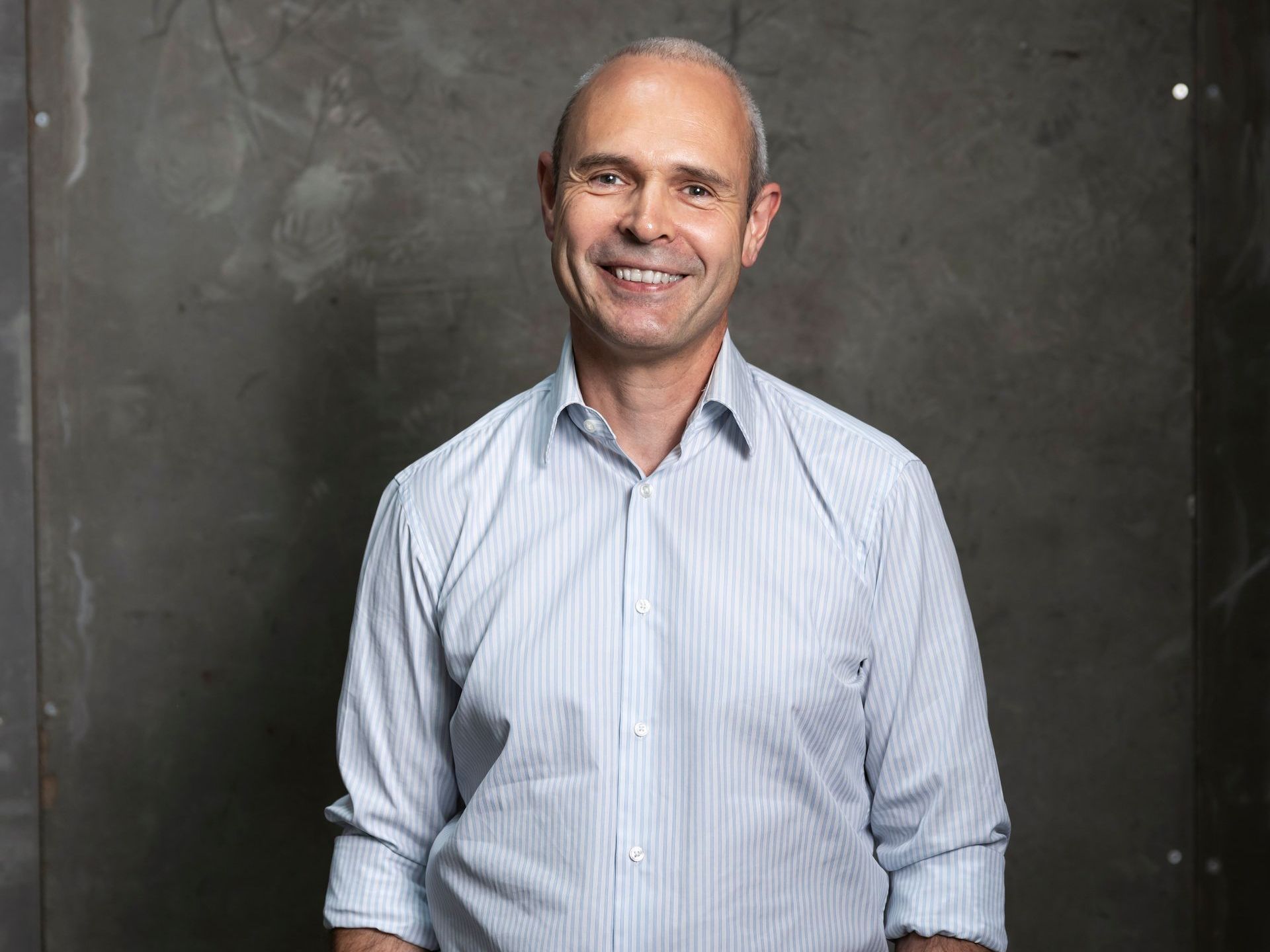The step into entrepreneurship was not planned for Pia Spori, Christian Reich and Marvin Thiele. But their product, developed in a design thinking project, convinced the client BMW Group so much that the step to found a startup was the logical consequence for the three of them.
In 2019, Pia Spori, Christan Reich and Marvin Thiele were students like so many others. They got stuck into their studies, enjoyed the freedoms of everyday life at university, and prepared themselves for the upcoming start of their careers. Due to their interest in innovation, they took the Design Thinking course led by Prof. Dr. Falk Uebernickel. And this course completely changed the plans of the three of them. Together with four other students from the University of St.Gallen (HSG) and the Hasso Plattner Institute (HPI) in Potsdam, they took on the challenge of helping BMW optimize error detection in the production process. Thanks to traineeships, many expert interviews and analyses, they got to know the manufacturing processes and the challenges, and during nine months they repeatedly developed new solutions for error detection in BMW's production. The result of the project group, the software called "IRIS", was a prototype of their current product and convinced both the client and the two participating universities. And so the three students - who had learned to know each other over the intensive nine months - became three founders, young entrepreneurs and friends with a first order from BMW.
Shortly after the project got serious and a first start-up contest followed, the three received their first funding in a business plan challenge. With a concept in their pocket, strategic advice behind them and a promising product in development, they wanted to take the next step: founding the company. But this step has to be well considered and was not easy for the VISENSE trio either. With the foundation it becomes official for the first time. A lot of things have to be well considered - and this requires good advice, because there is a lot at stake.
Why Schaffhausen?
They received this important support in the start-up phase from Adrian Stettler from the Economic Promotion of the Canton of Schaffhausen. Even before they founded in Schaffhausen, they received advice and support, explains Christian Reich COO of the start-up. Both in the search for office space as well as contacts to trustees or advice in the founding process. «That was unique. We are happy to be here!» In favour of Schaffhausen, there were other reasons, adding CEO Pia Spori: «For one thing, it is well located in terms of transport, close to Zurich and Germany, and near where we live. Rents for office space are much lower than in Zurich, for example. A special added value for us continues to be the support provided by the Economic Promotion of the Canton. The VISENSE trio is still in regular contact with Adrian Stettler and the team of the Economic Promotion and receives support in networking in the region and other topics. And this is where another locational advantage of the region becomes apparent: Schaffhausen has a lot to offer as a location for a start-up focused on industrial companies. «We have already been able to get to know various companies and present our product. I am convinced that a project can also be realized for us in the region,» adds CEO Pia Spori.
«Even before the founding we were advised and supported by the Economic Promotion of the Canton of Schaffhausen.» Christian Reich, Co-founder VISENSE
VISENSE – Video and Sensor
The development of VISENSE has great potential. The founders and the first client BMW see it that way, but also accelerator programs in which they participate or industrial companies' interest confirm it. But what exactly does VISENSE offer? «We use visual data to optimize industrial processes», explains Spori. Production downtime due to defects is a big problem in the industry; it reduces production capacity and is costly. With VISENSE, we do remote fault diagnoses. Our cameras and sensors installed on the machine record the data during production. Errors that occur on production equipment can be visually recorded by our system, among other things, and analyzed using machine learning to avoid them in the future. This means that production processes can be monitored worldwide, the faults identified and rectified more quickly. Furthermore, they optimize the processes around the machine to make the entire troubleshooting process more efficient. To ensure the necessary data basis, the plants are equipped with the VISENSE hardware kit. This consists of cameras, sensors, edge devices and network equipment.
The benefits are obvious: greater efficiency in troubleshooting, higher production quality and machine availability. For example, machine changeovers can be digitized, a previously very error-prone and sensitive process. At the same time, an automated exchange between different offshoots of a company can network knowledge and make it quickly accessible thanks to the digital platform.
«With the support of the Economic Promotion of the Canton of Schaffhausen we have already been able to get to know various local industry companies and presented our product.» Pia Spori, Co-founder VISENSE
How does the VISENSE success story continue?
We are still at the beginning, explains the founding team, and there is an incredible amount going on. They are still finishing their master's theses, developing a product strategy, talking to investors and customers, and participating in accelerator programs and competitions. These are very important for them at the moment, they say, because they make it possible to meet partners around the world, get funding, and at the same time continue learning thanks to mentoring and advice. «It is incredibly exciting what is currently going on and we are happy that we have taken the step with VISENSE in Schaffhausen!». And the Business Location Schaffhausen is looking forward to continuing the success story with the trio!







